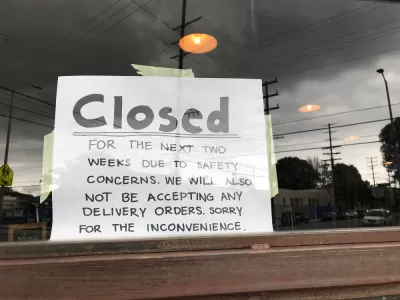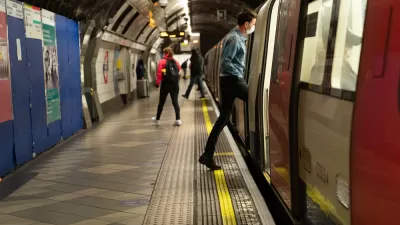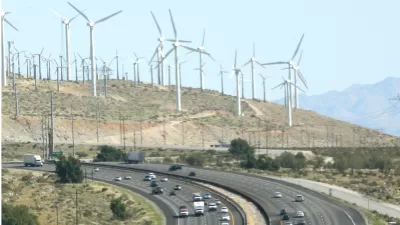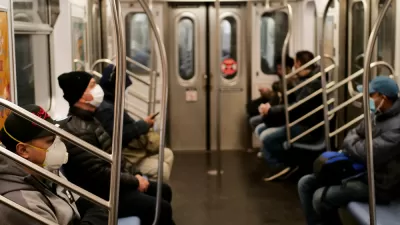The potential of the coronavirus to influence the way we travel and where we live is explored in this deep dive that also imagines how the world might benefit from less vehicle travel, during and after a pandemic.

An article by Steve Winkelman commences as follows:
Don’t just do something, stand there! Few of us could have imagined that a key strategy to save millions of lives was to just stay put. (Practitioners of meditation and mindfulness were probably better prepared.)
Billions of us, indeed are staying home, avoiding travel and driving shorter distances. We are figuring out which trips are truly essential, what we can afford and which travel modes and patterns are safest. At the same time, millions of people do not have the choice to work from home or the luxury to stay put. And that exacerbates longstanding structural inequalities pertaining to race and income.
The full article, linked below, is the second in a series by Steve Winkelman for Green Resilience that explores how lessons from the pandemic response might help accelerate climate action. This article focuses on the greenhouse gas emissions of transportation, the ongoing debate about how much density is causing transmission of the coronavirus, and more.
FULL STORY: Mobilizing Against COVID-19 (by staying put)

Trump Administration Could Effectively End Housing Voucher Program
Federal officials are eyeing major cuts to the Section 8 program that helps millions of low-income households pay rent.

Planetizen Federal Action Tracker
A weekly monitor of how Trump’s orders and actions are impacting planners and planning in America.

The 120 Year Old Tiny Home Villages That Sheltered San Francisco’s Earthquake Refugees
More than a century ago, San Francisco mobilized to house thousands of residents displaced by the 1906 earthquake. Could their strategy offer a model for the present?

Alabama School Forestry Initiative Brings Trees to Schoolyards
Trees can improve physical and mental health for students and commnity members.

NYC Outdoor Dining Could Get a Re-Do
The city council is considering making the al fresco dining program year-round to address cost concerns from small businesses.

HSR Reaches Key Settlement in Northern California City
The state’s high-speed rail authority reached an agreement with Millbrae, a key city on the train’s proposed route to San Francisco.
Urban Design for Planners 1: Software Tools
This six-course series explores essential urban design concepts using open source software and equips planners with the tools they need to participate fully in the urban design process.
Planning for Universal Design
Learn the tools for implementing Universal Design in planning regulations.
Ada County Highway District
Clanton & Associates, Inc.
Jessamine County Fiscal Court
Institute for Housing and Urban Development Studies (IHS)
City of Grandview
Harvard GSD Executive Education
Toledo-Lucas County Plan Commissions
Salt Lake City
NYU Wagner Graduate School of Public Service





























